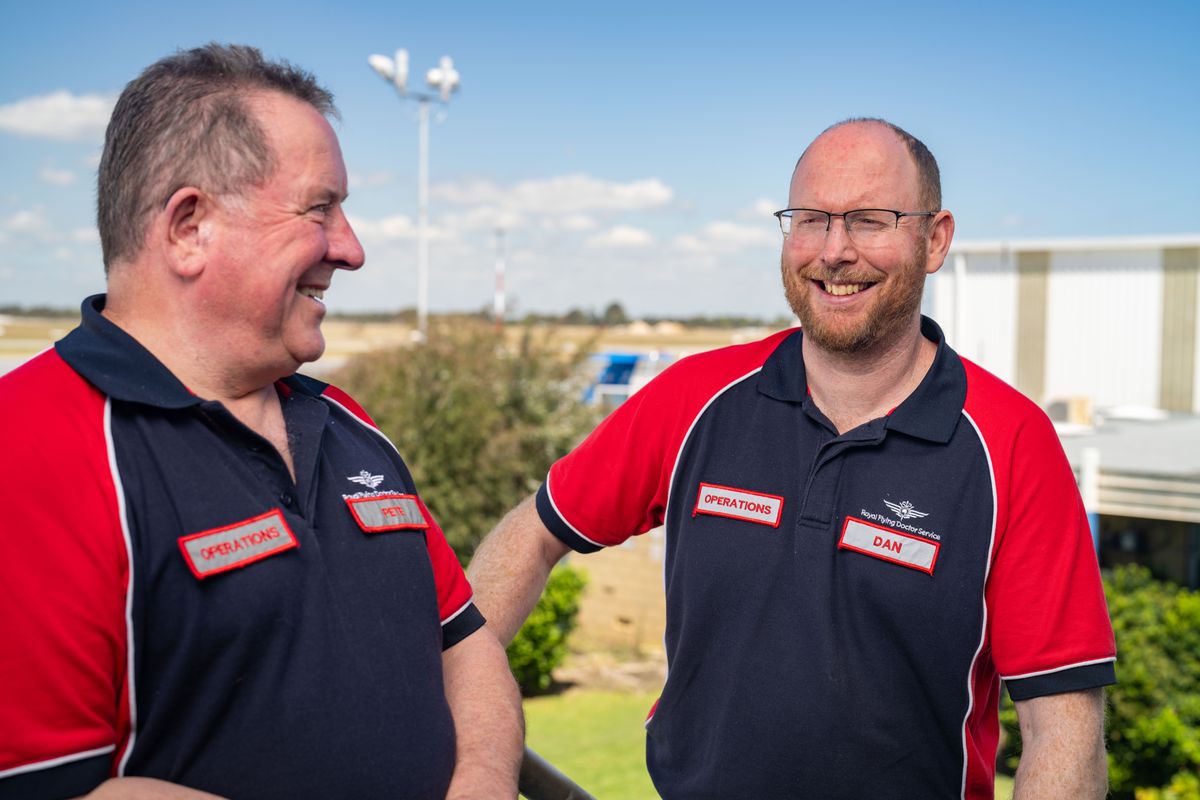
Dan Byles has been the Organisational Resilience Lead for the RFDS WA since 2021.
Dan's previous career roles include Resilience Manager and Head of COVID-19 Response at Murdoch University, Strategy and Engagement Manager for the NSW Government and a Soldier and Officer in the Australian Army. Serving for 12 years in the military and retiring as a Captain, Dan fulfilled strategic planning, logistics, emergency management and operational leadership roles in Australia and overseas.
Q. In simple terms, what is it that you do for the RFDS?
A. I help us prepare for, respond to and recover from severe and sudden events that could harm the RFDS, its people and its patients. This could be natural hazards like tropical cyclones and floods to security threats, mass casualty incidents, a pandemic or emergencies anywhere our employees and patients may be. Alongside my team, we partner with leaders across the organisation and external stakeholders to develop response plans and deliver training and exercises so that we can be ready to manage these situations.
Much of our work involves ensuring the RFDS plays its unique part alongside organisations such as St John Ambulance, WA Police and the Department of Fire and Emergency Services to provide a coordinated and integrated response to emergencies.
Q. How does your defence background help in your current role?
A. The military focuses on considering a wide range of internal and external factors when managing operations. This has helped me look at any situation holistically to answer questions during the planning process such as ‘what are we trying to achieve?’, ‘what resources do our people need?’ and ‘what could go wrong?’. The leadership model for officers in the Australian Defence Force strongly focuses on providing team members with a clear understanding of a mission’s ‘big picture’ and empowering them with the guidance, resources and authority to complete tasks.
This approach allows smart and motivated people to get on with the job within a framework of support and guidance, which fits well with how we at the RFDS can achieve our mission together amidst the dynamics and complexity of delivering remote health outcomes.
My time in command roles also ingrained in me that being a leader of people is a true privilege and you must prove yourself to be worthy of such a role by leading with influence, authenticity, diligence and compassion, rather than relying on your granted status.
Q. What attracted you to work for the RFDS?
A. The mission to provide health equity for all Western Australians really resonates with me. I wanted to be part of a team that helps people access health care, no matter where they are. The scale and diversity of the RFDS’s capabilities and services also reminds me of the operational complexity of the Australian Defence Force. The opportunity to work for an organisation with a similar purpose was too good to ignore.
Q. What do you enjoy most about your job?
A. The incredible importance of the work we do. I am fortunate to be able to contribute to a service that is life-changing, life-giving and often life-saving. The complexity of the RFDS’s operations in delivering services across the remote parts of WA and beyond is truly interesting and the achievements are so fulfilling when we successfully navigate challenges, pull together as a team and achieve our mission. When I arrive at the Jandakot base each morning I usually see one of our aircraft departing or arriving – it gives me that constant connection with our mission each day.


